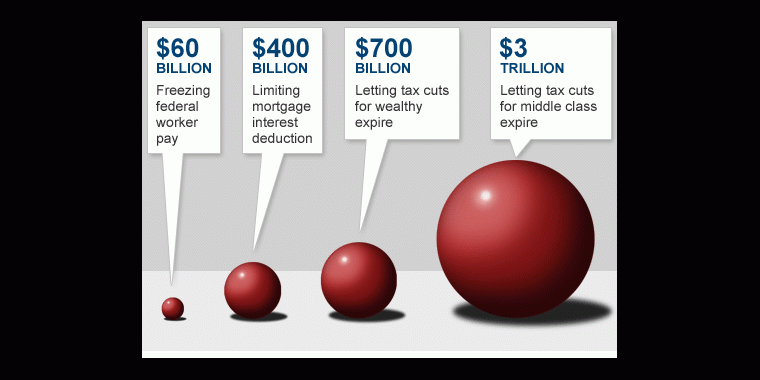
New Congress May Explore Federal Employee Furloughs Next Year
12/6/10: The new Congress may explore the enactment of unpaid federal employee furloughs next year. In fact, Rep. Mike Coffman (R. Colo.) has already proposed legislation (H.R. 6134) to require civilian federal employees to take two weeks of unpaid furlough days next year.
According to Coffman, "Currently, at least 24 states, and nearly three quarters of a million workers, are undertaking a budget-cutting maneuver that I believe we should institute at the federal level: short term employee furloughs. These states, across the nation, along with city and county government counterparts, recognize that occasional worker furloughs are necessary to cut budgets and hold down spending. It also has the benefit of ensuring that federal workers are not sheltered from the realities of life in today's economy."
Of course, many of the same lawmakers who support furloughs and salary freezes for middle class federal employees, purportedly to reduce the federal budget deficit, also strongly support an immediate extenstion of tax cuts for the wealthy, despite the fact that the latter will blow a huge hole in the deficit, and the former will save relatively little money.
Indeed, the salaries of federal workers constitute only a tiny fraction of total federal government spending. The $145 billion spent each year (not including the Postal Service) is less than 5 percent of total federal spending. After Congress excludes various employees in "security related" positions from a proposed furlough (which is what usually happens), that number will likely shrink to 2 percent or less. Thus, a two-week federal employee furlough would end up representing purported "savings" of a tiny fraction of one percent of the federal budget.
Furthermore, in some cases, furloughs may actually lose money for the federal government. A case in point is the SEC -- an agency that each year takes in more revenue than it costs to run the agency. Does it make sense to reduce the work of its workforce for two weeks next year?
Needless to say, NTEU will oppose any attempt to impose federal employee furloughs, and we will keep you informed regarding our efforts.
